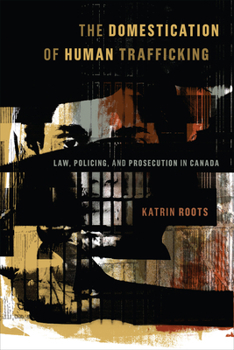The Domestication of Human Trafficking: Law, Policing, and Prosecution in Canada
Select Format
Select Condition 
Book Overview
Human trafficking has emerged as one of the top international and domestic policy concerns, and is well covered and often sensationalized by the media. The nature of the topic combined with various international pressures has resulted in an array of government-led mandates to combat the issue.
The Domestication of Human Trafficking examines Canada's criminal justice approaches to human trafficking, with a particular focus on the ways in which the intersecting factors of race, class, gender, and sexuality impact practice. Using a wide range of qualitative and empirically grounded research methods, including extensive analysis of court documents, trial transcripts, and interviews with criminal justice actors, this book contributes to much-needed research that examines, specifies, and sometimes complicates the narratives of how trafficking works as a criminal offence. The Domestication of Human Trafficking turns our attention to the ways in which the offence of human trafficking is made on the front lines of criminal justice efforts in Canada.





